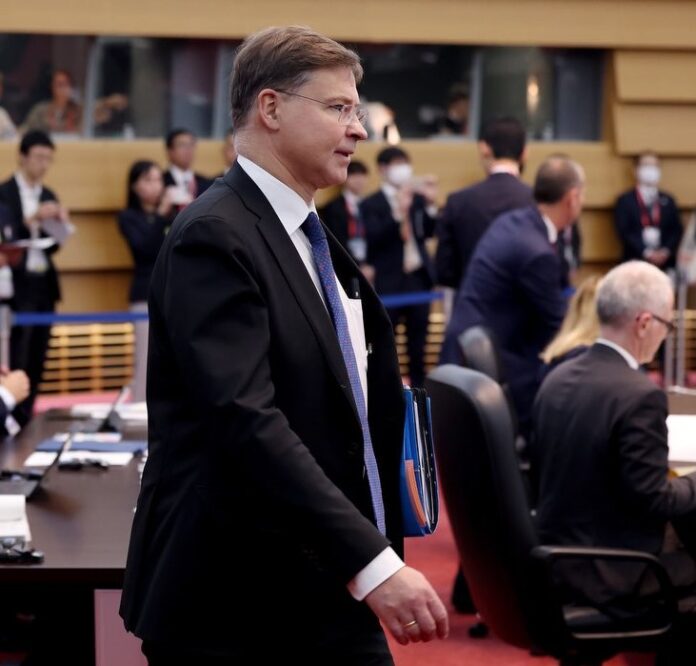Negotiations between the European Union and Australia over a free trade deal since 2018 have hit another snag, with talks breaking down before they could even begin.
The teams from both sides, who had gathered in Osaka, Japan, for the latest round of discussions, were expected to bridge the remaining gaps and reach a provisional agreement at the political level.
However, Don Farrell, Australia’s minister for trade and tourism, reportedly made fresh demands to expand market access for Australian farmers, causing the talks to fall apart.
EU and Australia share a common system of liberal democracy and an open-market economy, and they often refer to each other as “like-minded partners”. The value of their bilateral trade in goods amounts to €56.4 billion in 2022, and both have been eager to strengthen their relationship by achieving a free trade agreement (FTA).
However, since the FTA negotiations were officially launched in 2018, progress has been slow and turbulent. One of the significant challenges was the cancellation of a €56-billion submarine contract with France by Australia in 2021, which resulted in a prolonged breakdown in negotiations. The discussions have been detailed and thorough, covering various topics, from chemicals to cosmetics. Still, they have repeatedly failed to reach a consensus on market access for Australian products like beef and sheep meat.
The European Commission’s vice-president of trade relations, Valdis Dombrovskis, received last-minute requests from Farrell. The European side viewed these requests as a significant setback to the progress made during the past few weeks. Consequently, the negotiations were abruptly canceled. According to Australian agriculture minister Murray Watt, EU negotiators showed no flexibility during the latest round of talks. Watt stated in an interview with national broadcaster ABC on Monday that the EU’s lack of movement makes it unlikely that talks will resume during this current term of parliament. This suggests that the Australian government may not return to the negotiating table until after the 2025 general election.
EU foods Vs. Australian critical minerals?
A European Commission spokesperson said it had been optimistic about striking a deal in Osaka but that Australia had “re-tabled agricultural demands that did not reflect recent negotiations”.
The two sides have tussled over how far Europe should prise open its markets to Australia’s sheep meat, beef, and sugar exports.
At the same time, Europe wants better access to Australia’s rich deposits of “critical minerals”, easing its reliance on Russia and China for the key ingredients in clean-energy products such as wind turbines and electric car batteries. In July, the two parties failed to reach a deal during talks in Brussels because Australia considered that it didn’t include guarantees for “significant” access to the European market for its agricultural products.

